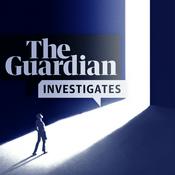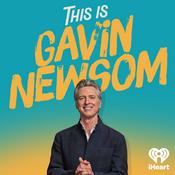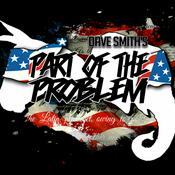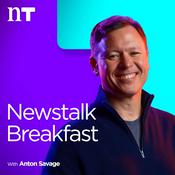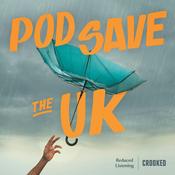AI & The Future of Humanity: Artificial Intelligence, Technology, VR, Algorithm, Automation, ChatBPT, Robotics, Augmented Reality, Big Data, IoT, Social Media, CGI, Generative-AI, Innovation, Nanotechnology, Science, Quantum Computing: The Creative Process Interviews
The Creative Process Original Series: Artificial Intelligence, Technology, Innovation, Engineering, Robotics & Internet of Things

Latest episode
138 episodes
- "Within society, we seem to have separated the arts out, so they're not so much a part of our daily lives. Often there's something that we feel we should do as a kind of leisure activity or hobby if we have enough time or if we have enough money to engage in them. And this is so fundamentally different to how humans engaged with the arts. When we look back thousands of years, it just was part of the everyday, and I feel like that's a major loss within contemporary societies."
Daisy Fancourt is a Professor of Psychobiology & Epidemiology at UCL and the author ofArt Cure: The Science of How the Arts Transform Our Health. A pioneer in the field of psychoneuroimmunology, she directs the WHO Collaborating Center on Arts and Health, where her research influences global health policy and the integration of the arts into medical care.
(0:00) The Healing Power of the Arts: Longevity, Immunity & Wellbeing
(1:17) Singing to Daphne: How Daisy used singing to comfort her premature daughter in the ICU
(2:47) The Story of Russell: How a stroke survivor used art classes to reclaim his life, health, and identity
(5:23) A Planet of 8 Billion Artists: Tracing the evolutionary origins of creativity back 40,000 years
(8:58) Psychoneuroimmunology. Defining the biological mechanisms: how art reduces inflammation and cortisol
(12:42) Art & Longevity. How arts engagement can slow biological aging and alter gene expression
(18:24) Safeguarding Creativity. Why we should use AI for routine tasks but protect the human joy of the creative process
Episode Website
www.creativeprocess.info/pod
Instagram:@creativeprocesspodcast AI, Muse Cells & The Future of Health: Why Stars like Chris Hemsworth & Tony Robbins Turn to Regenerative Medicine
25/1/2026 | 21 mins.“They're kind of like a hidden superhero in your body and we just didn't know they existed. Muse cells eat the damaged cells, and they can actually turn into new cells using the cellular machinery.”
Dr. Adeel Khan is a global thought leader in regenerative medicine. He is the CEO and Founder of and founder of Eterna Health, whose work with MUSE cell therapy—developed in collaboration with its discoverer, Professor Mari Dezawa—has made him the go-to expert for world leaders, athletes, and celebrities Chris Hemsworth, Kim Kardashian, and Tony Robbins. In this episode, we move beyond the hype of "anti-aging" to explore the hard science of Muse cells (Multilineage-differentiating Stress-Enduring cells). Dr. Khan breaks down how these unique cells differ from the "medicinal signaling cells" (MSCs) found in most clinics and how they act as a bridge to a future where tissue regeneration is standard care.
(0:00) The "Repair Guys" & The Muse Difference Dr. Khan explains why traditional stem cells (MSCs) often disappoint and how Muse cells offer the "best of both worlds": safety and pluripotency.
(2:19) Smart Cells: How They Find the Damage Understanding the "homing mechanism" that allows Muse cells to sense inflammation and instinctively travel to injured areas like the brain or heart.
(3:11) Curing the Incurable: Diabetes & Alzheimer's The potential of the "cure triad"—stem cells, gene therapy, and FMT—to treat complex autoimmune diseases within the next decade.
(4:40) Biological Noise & The Symphony of Health How "static" in our gene expression indicates aging, and how cellular therapy can reduce this noise to restore the body's harmony.
(6:40) The Viral Monkey Study Dr. Khan discusses a recent study showing significant de-aging in monkeys through high-frequency cell dosing.
(7:32) Unshakeable Foundations: Lifestyle as Medicine
Why advanced therapies must be paired with purpose, community, and mindfulness to create a "bulletproof" body.
(8:44) From Sketchy to Standardized
Navigating the regulatory landscape: why Muse cells are being classified as a drug in regions like the UAE and the path toward FDA approval.
(12:24) A Personal Mission
Dr. Khan shares the origin of his journey: trying to find solutions for his mother's chronic illness when traditional medicine failed.
(14:16) The Cancer Hunter
Unlike other pluripotent cells that risk tumor growth, Muse cells have a unique mechanism that can detect cancer cells and trigger their death.
(18:30)Future Outlook: AI, Nature & Blue Zones Reflections on the risks of AI, the importance of "Blue Zone" city design, and reconnecting with nature in a post-human world.
Episode Website
www.creativeprocess.info/pod
Instagram:@creativeprocesspodcastSpeaking Out of Place - DAVID PALUMBO-LIU on Reclaiming Our Political Voices - Highlights
27/12/2025 | 11 mins.On the urgent need to reclaim our political voices, the forces that silence dissent, and how art and poetry are crucial tools for survival
Our guest today is an activist scholar who believes the classroom is inseparable from the public square. David Palumbo-Liu is the Louise Hewlett Nixon Professor of Comparative Literature at Stanford University and a founding faculty member of Stanford’s Program in Comparative Studies in Race and Ethnicity. But his work has long reached beyond the academy. Through his book, Speaking Out of Place: Getting Our Political Voices Back, and his podcast of the same name, he insists that the great global crises of our time—from escalating wars and democratic failures to environmental collapse—are fundamentally crises of value and voice. His recent work has put him on the front lines of campus activism, challenging institutions, resigning his membership from the MLA, a move that highlights the ethical cost of speaking truth to power. We’ll talk about what he calls the "carceral logic" of the modern university, why art and poetry are crucial tools for survival in times of war, and what he tells his students about preparing for a future defined by uncertainty. His perspective is rooted in literature, but his urgency is all about the world we live in now. We will discuss the forces that silence dissent, the "imperial logic" of AI, and what it means to be a moral, active citizen when the systems we rely on are failing.
“There is a dispute about what the American Dream is or how it would play out in different circumstances. The American dream has essentially been narrowed into a white Christian nationalist notion of things so that everything that falls outside what they imagine that to be is not only undesirable, but should be the subject of extermination, deportation, and detention. I am heartened by the fact that more of our 'better angels' are emerging with a more capacious and expansive notion of what the American dream could be.”
Episode Website
www.creativeprocess.info/pod
Instagram:@creativeprocesspodcastReclaiming the American Dream with DAVID PALUMBO-LIU – Stanford Professor, Author & Host, Speaking Out of Place
27/12/2025 | 1h 6 mins.On the urgent need to reclaim our political voices, the forces that silence dissent, and how art and poetry are crucial tools for survival
“There is a dispute about what the American Dream is or how it would play out in different circumstances. The American dream has essentially been narrowed into a white Christian nationalist notion of things so that everything that falls outside what they imagine that to be is not only undesirable, but should be the subject of extermination, deportation, and detention. I am heartened by the fact that more of our 'better angels' are emerging with a more capacious and expansive notion of what the American dream could be.”
Our guest today is an activist scholar who believes the classroom is inseparable from the public square. David Palumbo-Liu is the Louise Hewlett Nixon Professor of Comparative Literature at Stanford University and a founding faculty member of Stanford’s Program in Comparative Studies in Race and Ethnicity. But his work has long reached beyond the academy. Through his book, Speaking Out of Place: Getting Our Political Voices Back, and his podcast of the same name, he insists that the great global crises of our time—from escalating wars and democratic failures to environmental collapse—are fundamentally crises of value and voice.
His recent work has put him on the front lines of campus activism, challenging institutions, resigning his membership from the MLA, a move that highlights the ethical cost of speaking truth to power. We’ll talk about what he calls the "carceral logic" of the modern university, why art and poetry are crucial tools for survival in times of war, and what he tells his students about preparing for a future defined by uncertainty. His perspective is rooted in literature, but his urgency is all about the world we live in now. We will discuss the forces that silence dissent, the "imperial logic" of AI, and what it means to be a moral, active citizen when the systems we rely on are failing.
Episode Website
www.creativeprocess.info/pod
Instagram:@creativeprocesspodcastThe AI Wager: Betting on Technology’s Future w/ Philosopher & Author SVEN NYHOLM - Highlights
01/12/2025 | 16 mins.“ I think we're betting on AI as something that can help to solve a lot of problems for us. It's the future, we think, whether it's producing text or art, or doing medical research or planning our lives for us, etc., the bet is that AI is going to be great, that it's going to get us everything we want and make everything better. But at the same time, we're gambling, at the extreme end, with the future of humanity , hoping for the best and hoping that this, what I'm calling the AI wager, is going to work out to our advantage, but we'll see.”
As we move towards 2026, we are in a massive “upgrade moment” that most of us can feel. New pressures, new identities, new expectations on our work, our relationships, and our inner lives. Throughout the year, I've been speaking with professional creatives, climate and tech experts, teachers, neuroscientists, psychologists, and futureists about how AI can be used intelligently and ethically as a partnership to ensure we do not raise a generation that relies on machines to think for them. It’s not that we are being replaced by machines. It’s that we’re being invited to become a new kind of human. Where AI isn’t the headline; human transformation is. And that includes the arts, culture, and the whole of society. Generative AI – the technologies that write our emails, draft our reports, and even create art – have become a fixture of daily life, and the philosophical and moral questions they raise are no longer abstract. They are immediate, personal, and potentially disruptive to the core of what we consider human work.
Our guest today, Sven Nyholm, is one of the leading voices helping us navigate this new reality. As the Principal Investigator of AI Ethics at the Munich Center for Machine Learning, and co-editor of the journal Science and Engineering Ethics. He has spent his career dissecting the intimate relationship between humanity and the machine. His body of work systematically breaks down concepts that worry us all: the responsibility gap in autonomous systems, the ethical dimensions of human-robot interaction, and the question of whether ceding intellectual tasks to a machine fundamentally atrophies our own skills. His previous books, like Humans and Robots: Ethics, Agency, and Anthropomorphism, have laid the foundational groundwork for understanding these strange new companions in our lives.
His forthcoming book is The Ethics of Artificial Intelligence: A Philosophical Introduction. The book is a rigorous exploration of everything from algorithmic bias and opacity to the long-term existential risks of powerful AI. We’ll talk about what it means when an algorithm can produce perfect language without genuine meaning, why we feel entitled to take credit for an AI’s creation, and what this technological leap might be costing us, personally, as thinking, moral beings.
Episode Website
www.creativeprocess.info/pod
Instagram:@creativeprocesspodcast
More News podcasts
Trending News podcasts
About AI & The Future of Humanity: Artificial Intelligence, Technology, VR, Algorithm, Automation, ChatBPT, Robotics, Augmented Reality, Big Data, IoT, Social Media, CGI, Generative-AI, Innovation, Nanotechnology, Science, Quantum Computing: The Creative Process Interviews
What are the dangers, risks, and opportunities of AI? What role can we play in designing the future we want to live in? With the rise of automation, what is the future of work? We talk to experts about the roles government, organizations, and individuals can play to make sure powerful technologies truly make the world a better place–for everyone.
Conversations with futurists, philosophers, AI experts, scientists, humanists, activists, technologists, policymakers, engineers, science fiction authors, lawyers, designers, artists, among others.
The interviews are hosted by founder and creative educator Mia Funk with the participation of students, universities, and collaborators from around the world.
Podcast websiteListen to AI & The Future of Humanity: Artificial Intelligence, Technology, VR, Algorithm, Automation, ChatBPT, Robotics, Augmented Reality, Big Data, IoT, Social Media, CGI, Generative-AI, Innovation, Nanotechnology, Science, Quantum Computing: The Creative Process Interviews, The Indo Daily and many other podcasts from around the world with the radio.net app

Get the free radio.net app
- Stations and podcasts to bookmark
- Stream via Wi-Fi or Bluetooth
- Supports Carplay & Android Auto
- Many other app features
Get the free radio.net app
- Stations and podcasts to bookmark
- Stream via Wi-Fi or Bluetooth
- Supports Carplay & Android Auto
- Many other app features


AI & The Future of Humanity: Artificial Intelligence, Technology, VR, Algorithm, Automation, ChatBPT, Robotics, Augmented Reality, Big Data, IoT, Social Media, CGI, Generative-AI, Innovation, Nanotechnology, Science, Quantum Computing: The Creative Process Interviews
Scan code,
download the app,
start listening.
download the app,
start listening.








